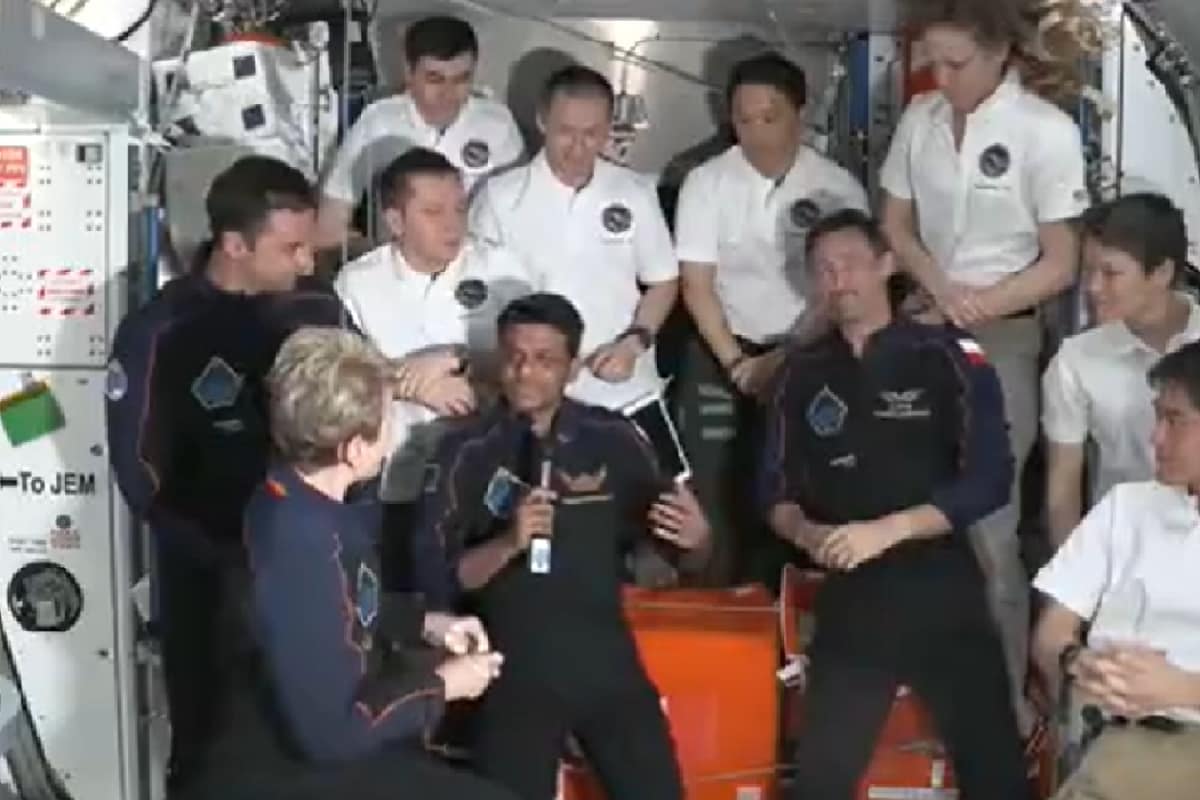

Group Captain Shubhanshu Shukla has etched his name in the annals of Indian space history, becoming the first Indian astronaut to reach the International Space Station (ISS). The Axiom-4 (Ax-4) mission, carrying Shukla and his three international crewmates, successfully docked with the orbiting laboratory on Thursday, marking a triumphant return for India to human spaceflight after 41 years.
Shukla, a test pilot from the Indian Air Force and an ISRO astronaut, is part of the Axiom-4 crew that includes Commander Peggy Whitson from the United States, Mission Specialist Sławosz Uznański-Wiśniewski from Poland, and Mission Specialist Tibor Kapu from Hungary. The mission launched aboard a SpaceX Dragon spacecraft from NASA's Kennedy Space Center in Florida. The docking with the ISS's Harmony module was executed flawlessly.
In an emotional message sent from orbit, Shukla greeted his fellow Indians with "Namaskar from space," expressing his profound pride in carrying the hopes and dreams of 1.4 billion people on his shoulders. He described the experience of floating in the vacuum of space as "indescribable" and "humbling," thanking everyone who made his journey possible. Shukla emphasized that his achievement was not merely a personal one, but a collective accomplishment of everyone involved in the mission.
"We are back in space once again after 41 years. It's an amazing ride. We are revolving around the Earth at a speed of 7.5 kilometers per second. The Tiranga embossed on my shoulders tells me that I am with all of you," Shukla said. "This journey of mine is not a beginning to the International Space Station (ISS) but to India's Human Space Programme. I want all of you to be part of this journey. Your chest, too, should swell with pride...Together, let's initiate India's Human Space Programme. Jai Hind! Jai Bharat!"
Shukla's journey to the ISS is not only a historic milestone but also a crucial step forward for India's human spaceflight program, Gaganyaan. His participation in the Axiom-4 mission provides invaluable hands-on experience in spaceflight operations, microgravity adaptation, and emergency protocols. This experience will directly inform and enhance India's own human spaceflight ambitions. The mission is a collaboration between NASA, SpaceX, and ISRO, intended to strengthen international spaceflight cooperation.
During their 14-day stay aboard the ISS, the Axiom-4 crew will conduct around 60 experiments in microgravity. Shukla himself is slated to perform around seven experiments, including joint studies by ISRO and NASA. These experiments will delve into areas such as space biology, human health, and life-support systems, which are critical for long-duration missions in deep space. His work will include projects such as Space Microalgae, Voyager Tardigrades, Bone Health Monitoring, and ISRO-supported research into crop seed viability and cyanobacteria behavior in microgravity. He will also grow Indian superfoods like moong and methi in zero gravity to study how microgravity affects seed germination and plant growth. This research aims to develop India-specific space food systems and identify space-hardy genes that could enable sustainable food production during long missions to the Moon or Mars.
Shukla's mission signifies a maturing space ecosystem where private firms are shaping access to low-Earth orbit. The Axiom-4 mission represents a fusion of established expertise and new ambition, with space companies partnering across borders. His presence on the ISS strengthens India's space research ecosystem and prepares the country for sustained human presence in space, including future plans for an Indian space station.
As Shukla settles into life aboard the ISS, his achievement stands as a beacon of inspiration for future generations and a testament to international collaboration in the pursuit of scientific discovery.